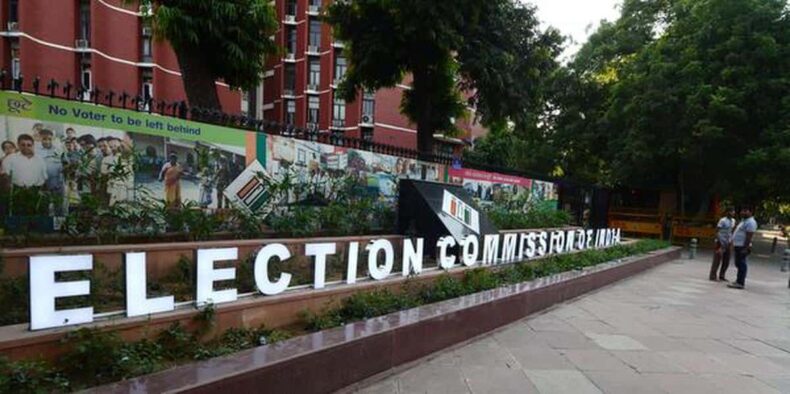The Election Commission has made the decision to no longer be a “silent spectator” about the unfavorable effects of some poll promises on the conduct of free and fair elections and on preserving an even playing field for all political parties and candidates.

The Constitution of India establishes the Election Commission of India (ECI). It was created by the Indian Constitution to oversee and oversee elections in the nation. The election commission must have the authority to supervise, direct, and oversee elections for the state legislatures, the president of India, and the vice-president of India, as per Article 324 of the Constitution.
The Election Commission is an organization that provides services to both the national government and the state governments, making it a national organization.
The group is in charge of the nation’s presidential and vice presidential elections, as well as those for the Lok Sabha, Rajya Sabha, state legislative assemblies, and state legislative councils. Article 324 of the Constitution grants the Election Commission authority to carry out its duties, and as a result, the Representation of the People Act was passed.
According to the Constitution, the commission has the authority to take necessary action when the provisions of the laws that have been passed are insufficient to address a specific circumstance that may arise during the conduct of an election.
The country’s higher judiciary, the Union Public Service Commission, and the Comptroller and Auditor General of India are among the few institutions that operate with both autonomy and freedom. The Election Commission is one of these few institutions because it is a constitutional authority. It is an ongoing constitutional entity.
Election Commission Proposal:
The Election Commission (EC) on Tuesday proposed adding a standardized Pro-forma as a modification to the Model Code of Conduct (MCC) to clarify the declaration procedure in an effort to remove the ambiguity and financial vagueness of promises made by political parties in their election manifestos.
According to the polling organization, this will ensure that the parties have the funding to support the changes and that voters are aware of the financial implications of the campaign promises. All recognized national and state political parties have received letters from the EC requesting their opinions on the suggested amendments.
The Election Commission of India observed that the declarations are quite routine, ambiguous, and do not give voters enough information to make an informed choice in an election, the poll body said in a statement on Tuesday. According to the poll organization, “although the current MCC standards demand the political parties and candidates to explain the justification for promises made therein as well as the potential ways and means to finance such pledges.”
It also stated that the Commission, which was made up of chief election commissioner Rajiv Kumar and election commissioner Anup Chandra Pandey, decided that the top election body would not be a “mute spectator” regarding the unfavorable effects of some promises and offers on the conduct of free and fair elections and maintaining level playing fields.
With the intention of “not only strengthening the Model Code of Conduct guidance for political parties and candidates but also ensuring authentic information to the voters to assess the financial viability of election promises made by political parties,” the EC has written to all recognized national and state political parties, seeking their opinions on moving forward with a proposed amendment for bringing about a standardized disclosure performance.

The parties have until October 18 to make a change.
The Commission maintains that it is “agnostic to the nature of promises, but it is imperative for the conduct of free and fair elections to frame disclosure requirements to enable constructive discussion on the financial repercussions of keeping those commitments, both now and in the future for the fiscal sustainability.”
The Commission has suggested that a standardized disclosure program be created to serve as guidance for political parties and candidates while also providing voters with accurate information to evaluate the financial sustainability of election pledges made by political parties.
The proforma requests information regarding methods of increasing revenue (via new taxes, if any), rationalizing expenditures (reducing some programs, if necessary), impact on committed liabilities, and/or generating additional debt, as well as its influence on FRBM limits.
The election body has proposed amending the Model Code of Conduct to include an additional form that would include declarations of the extent and expanse of coverage (for instance, individual, family, community, BPL or all population, etc.); quantification of physical coverage as in me above; quantification of financial implications of the promise (s) made; and availability of telecommunications services.
In the year of the general election, It will also be necessary for the Chief Secretaries of State and the Union Finance Secretary in the Center to input financial data based on the most recent BE/ RE. Parties will be required to report in accordance with these fiscal guidelines, facilitating comparability and standardization, the statement continued.












